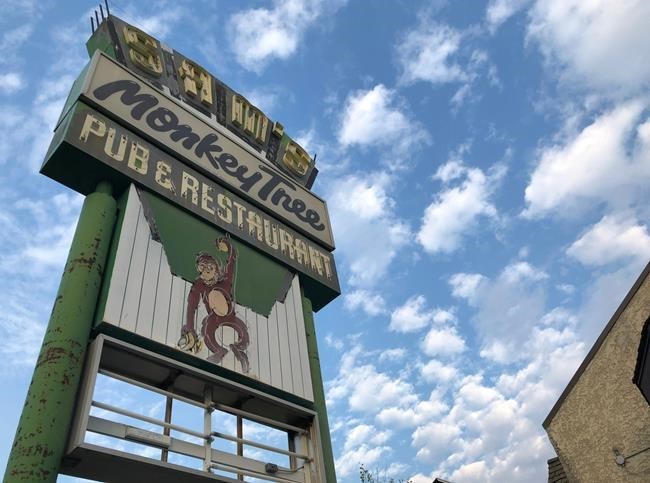YELLOWKNIFE — The owners of a Yellowknife pub headed to trial Thursday to fight a charge of violating Northwest Territories COVID-19 public health orders.
Public health officers issued a ticket to The Monkey Tree Pub in December 2020. The ticket alleges the pub operated a dance floor after midnight on Nov. 14, 2020, which was against public health orders at the time. It carries a fine and surcharge totalling $5,175.
Two liquor inspectors testified that during a routine inspection of the crowded bar they saw people on the dance floor.
"Everybody was pretty much shoulder to shoulder," said Suzanne Hanna, manager of liquor enforcement.
Vibhesh Tripathi said he counted 132 people. It was slightly above the 125-person capacity limit that public health officials had granted the pub at the time, but below the limit allowed under the liquor act.
Tripathi and Hanna said there were no signs indicating the dance floor was closed and, unlike other bars in the city that had converted their dance floors into seating areas, they didn't see any tables and chairs.
On cross-examination by defence lawyer Jay Bran, Hanna said it was possible people could have blocked her view of tables or chairs.
But Tripathi said it "would be rather impossible" that his view was obstructed as he had walked around the dance floor. He said a bartender indicated the dance floor was open.
Hanna and Tripathi said they didn't take photos documenting the alleged violations because it was outside their role as liquor inspectors.
"I saw it with my own two eyes and I was there," said Hanna.
Ian Ellsworth, who was a public health officer at the time, testified that he spoke to the inspectors and collected statements, notes and reports from them as part of his investigation into the complaint against the pub. He said he did not speak to pub staff, because it would be awkward for someone to give a statement against their employer. He said he had two "credible" eyewitnesses.
"I didn't think that I needed to," he said.
Ellsworth decided to proceed with a ticket, which he and another officer served to the pub's co-owners four weeks later. He said the owners, Jennifer Vornbrock and Stephen Dinham, were "very confrontational," raising their voices and questioning if another bar in the city was also being charged.
"They were just very upset that they were being charged," he said, adding that before he left one of the owners said, "Oh, this'll just get thrown out in court anyways.'"
Prosecutor Roger Shepard said the case is not a complicated matter and a conviction for operating a dance floor is warranted. He said the Crown was not pursuing a charge over allegations the pub had exceeded capacity limits.
Bran did not call any evidence. He said the Crown, lacking a "more fulsome investigation," had failed to prove that nothing had been done to prevent people from dancing nor what the requirements to close a dance floor were.
Deputy Judge Bernadette Schmaltz said she would give a decision Friday.
The pub was the first business in N.W.T. to be charged with violating COVID-19 rules. A charge against the Super A Foods grocery store in Hay River was stayed by the Crown in May 2022.
During the COVID-19 public health emergency in N.W.T., which ended on April 1, 2022, the territory's COVID-19 secretariat issued 73 tickets for violations of public health orders. Of those, 69 were issued to individuals and two to businesses.
This report by The Canadian Press was first published Oct. 6, 2022.
___
This story was produced with the financial assistance of the Meta and Canadian Press News Fellowship.
Emily Blake, The Canadian Press



